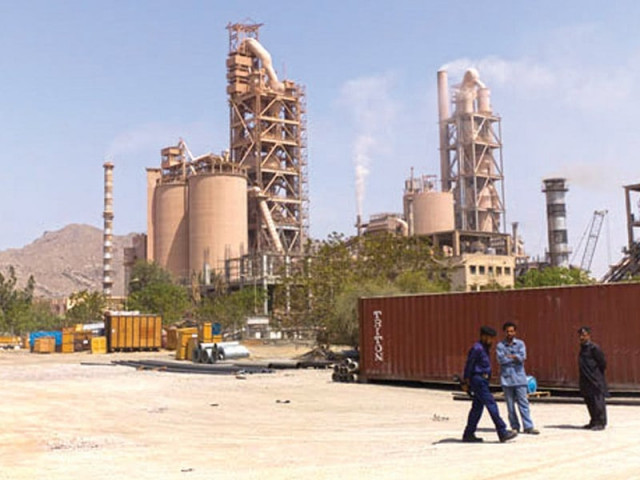Construction materials: Security the only hurdle in Attock Cement’s expansion
Company runs enviably well, but faces threats to its business in Hub, Balochistan.

Like most of Pakistan’s construction materials companies, Attock Cement operates just one plant: a 1.8 million ton capacity factory based in Hub, an industrial suburb of Karachi and the only major industrial town in Balochistan. Violence in and around Hub has made it difficult for the company to contemplate expanding its operations within the same facility.
“We have zero debt and can easily expand our plant. We want to invest more but we are hesitant because of the security issues we have to face in Hub,” said Babar Bashir Nawaz, CEO of Attock Cement, in an interview with The Express Tribune.
The problem for Attock Cement lies not in the Hub Industrial Estate (HITE), but rather on the narrow, desolate highway connecting the town to Karachi. Trucks carrying the company’s product and buses carrying its employees are a soft target for militants, separatists and even criminals. Several of Attock’s employees have lost their lives in terrorist attacks in recent years.
The poor law and order situation almost completely nullifies what are otherwise excellent advantages of the plant’s location: cheap land, abundant electricity supply, quick access to the ports, and the ability to recruit from Karachi’s skilled workforce.
So while the company has not been able to increase its production capacity, it is trying to improve its profitability by cutting down its costs. Attock Cement has invested $20 million in setting up a waste-heat recovery plant from which it is generating 9.5 megawatts of electricity.

The company also wants to begin producing electricity by 2013 by burning garbage, though it is facing resistance from the Karachi city government, which insists on being paid for the municipal waste, even when it is being collected directly by Attock Cement itself.
Attock has two enduring advantages over most of its rivals. Its plant is operating at full capacity, compared to the industry average of close to 72%. And it has absolutely no debt, not even short-term loans, compared to the cement sector’s average debt-to-equity ratio of 1.29. Unfortunately, that also means that the company has very little room for improvement: its revenues will only go up if prices go higher in either the domestic or international markets and its profits cannot be improved simply by paying down debts.
For the financial year ending June 30, 2012, Attock Cement’s revenues increased by almost 18%, an increase that can be attributed almost entirely to higher local prices of cement. Gross revenues for the period stood at Rs12.7 billion. Net income for financial 2012 more than doubled to Rs1.4 billion, up 110% compared to the previous year.
Attock derives only about 21% of its revenues from exports, compared to the cement sector’s average of about 27%. The company’s management says that they often get lower prices for their cement for export compared to local sales.
The reason for lower exports appears to be the lower quality of Pakistani cement. “Almost all cement-importing countries have introduced stringent quality laws that have make things difficult for Pakistani exporters,” said Nawaz.
Nawaz has been associated with the Attock Group for 30 years, and has served as the CEO of Attock Cement for the last decade.
Attock Cement is part of the Attock Group, whose majority shareholder is the Harvard-educated Ghaith Pharaon, a Saudi billionaire.
Published in The Express Tribune, November 30th, 2012.



















COMMENTS
Comments are moderated and generally will be posted if they are on-topic and not abusive.
For more information, please see our Comments FAQ